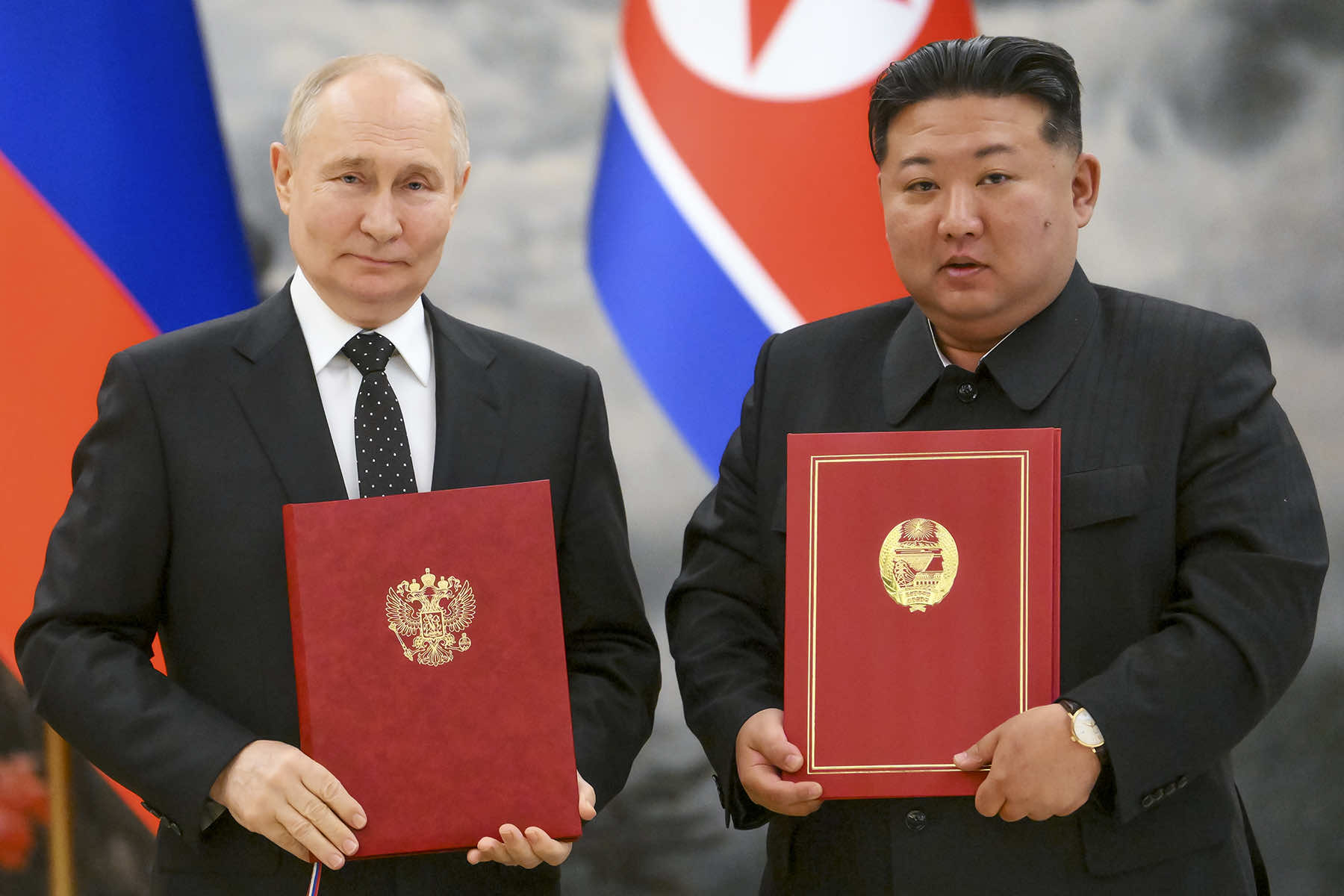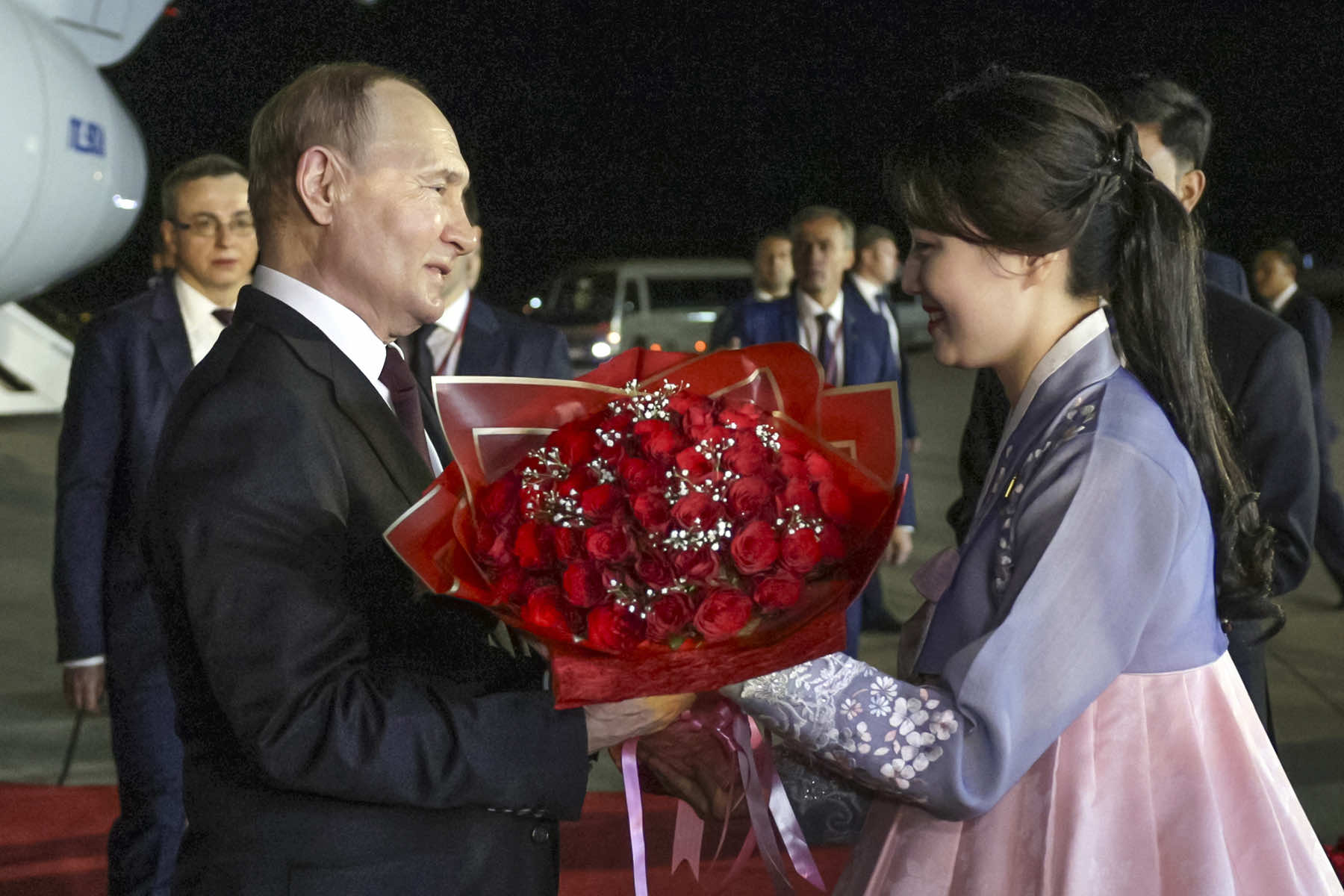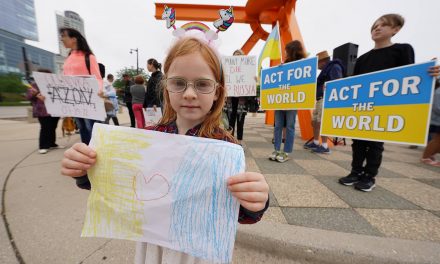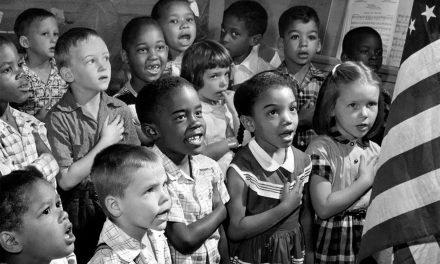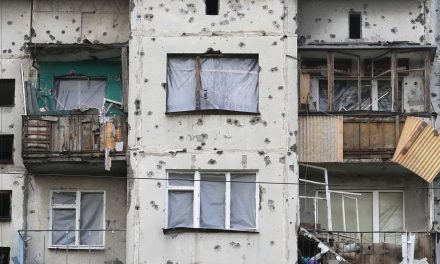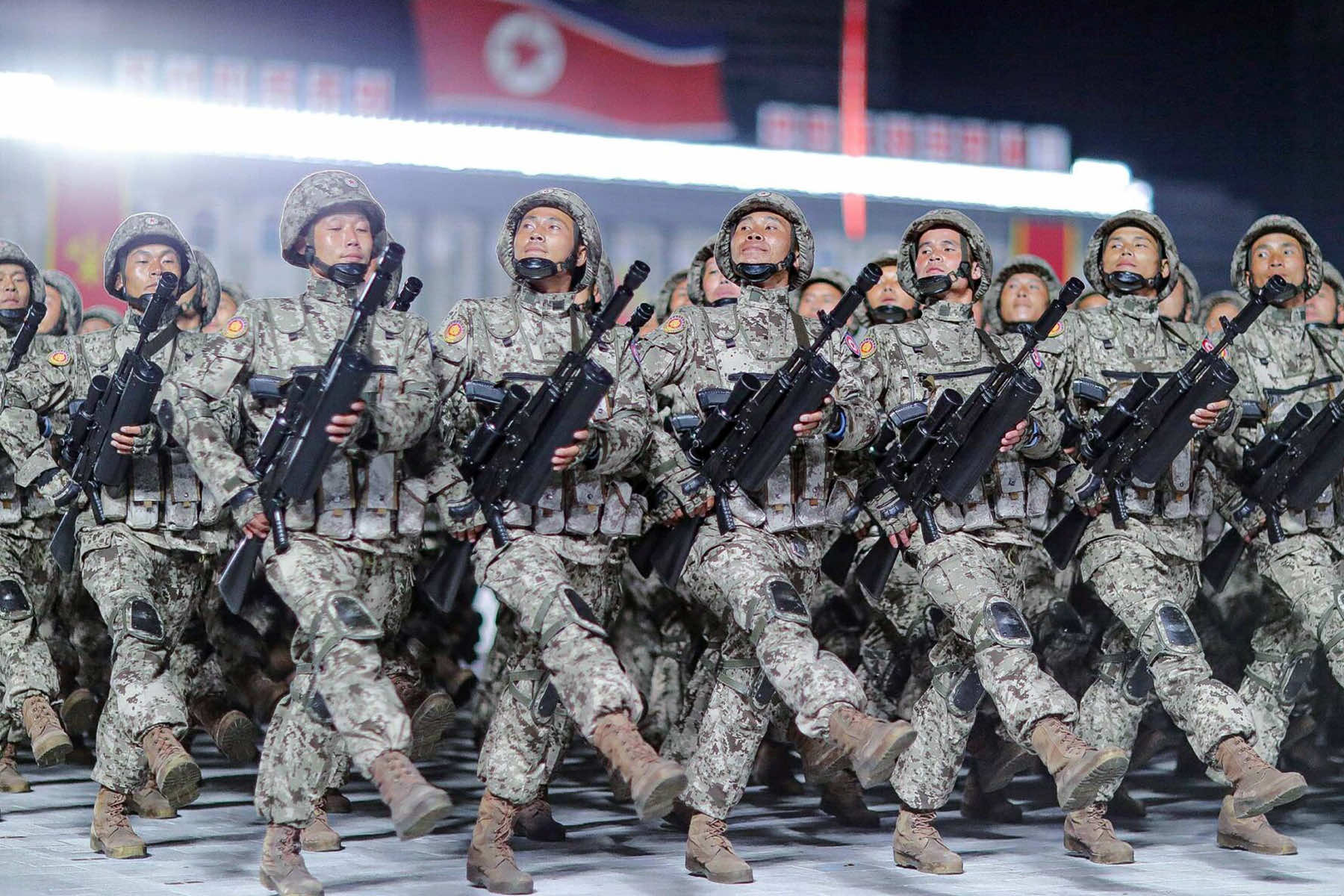
North Korea’s calculated support for Russia in the Ukraine war has thrust the secretive nation into a new level of international intrigue.
Reports from South Korea’s National Intelligence Service (NIS) revealed that Pyongyang sent thousands of troops to Moscow and agreed to a steady supply of military support, all in exchange for Russian aid that ranged from cash to grain supplies—resources North Korea desperately needed.
But the move was more than just a survival tactic, it was a high-stakes gamble that reshaped alliances in Northeast Asia and altered North Korea’s standing in the world. North Korea’s bet on Russia signaled a strategic shift, one that might have paid off in the short term but risked unintended consequences in the years to come.
The alliance between Vladimir Putin and Kim Jong-un underscores the troubling bond between two of the world’s most notorious dictators, each known for ruthlessly suppressing dissent and wielding power through fear and control.
Putin’s war in Ukraine, marked by widespread destruction and civilian casualties, has drawn condemnation worldwide, while Kim’s regime remains infamous for its severe human rights abuses and isolationist policies that keep North Koreans in poverty and under constant surveillance.
Together, their partnership in Ukraine represents a dangerous alignment of autocratic interests, where the needs and lives of ordinary people — whether in Ukraine or the Korean Peninsula— are disregarded in pursuit of power and domination.
THE ECONOMIC CALCULUS: $200 MILLION AND FOOD RELIEF
NIS and affiliated think tanks analyzed North Korea’s decision and its motivations. North Korean soldiers reportedly received about $2,000 per month for their service in Russia, a figure unheard of within the isolated regime where the average citizen faces economic hardship and scarcity.
According to sources briefed by South Korean officials, North Korea has already supplied over 10,000 soldiers – about a week of battlefield casualties for the Russian army, marking a potential annual revenue of around $200 million for the impoverished country. The influx provides a significant lifeline to the regime, which faces prolonged economic sanctions and limited foreign income.
The stakes go beyond cash payments. Russia has pledged to support North Korea’s critical food shortages by providing approximately 600,000 to 700,000 tons of rice, filling a substantial gap in North Korea’s failing food supply. According to South Korean lawmakers with insight into North Korean agriculture, the country claimed to produce around 4 million tons of grain annually, although the number included a variety of crops, with rice itself representing only a fraction.
North Korean analysts contended that its food production typically falls about a million tons short of meeting domestic demand. Russia’s rice contribution alone reportedly covers more than half of the shortfall, offering a lifeline that could forestall the kind of severe hunger crises that had plagued the country in previous years and left millions dead from starvation.
A STRATEGIC LEAP: TECHNOLOGICAL AND MILITARY SUPPORT
Beyond economic aid, North Korea has received advanced technology and expertise from Russia to support its burgeoning missile and space programs. That included collaboration on reconnaissance satellite technology, a critical component of North Korea’s defense strategy that the regime has struggled to develop independently.
Such cooperation aligns with North Korea’s goals of launching a military satellite, a feat it has not yet achieved despite several attempts. For North Korea, obtaining satellite reconnaissance capability could shift its strategic position on the Korean Peninsula, granting it greater surveillance capacity and enhanced missile targeting potential.
The alliance also paves the way for a mutual defense commitment. Observers from Seoul’s Institute for National Security Strategy (INSS) highlight Russia’s willingness to deepen ties with North Korea, which is expected to bring them into a formalized agreement to provide military support in the event of a conflict on the Korean Peninsula.
“North Korea and Russia’s military cooperation is likely to persist beyond the Ukraine conflict,” noted an analyst from the INSS.
The mutual defense assurance could deter North Korea’s regional adversaries, particularly if Russia offers implicit backing in disputes with South Korea or U.S. forces stationed in the region.
CALCULATING THE SHIFT IN U.S. FOREIGN POLICY
North Korea’s decision to align itself closely with Russia is, in part, a strategic calculation tied to possible shifts in U.S. foreign policy. South Korean intelligence suggests that North Korean leaders anticipated changes in U.S. involvement in the Ukraine conflict that might reduce pressures on Russia and allow Moscow to reinforce its strategic alliances elsewhere, including with North Korea.
The INSS, however, warned of a potential miscalculation. Analysts from the organization argue that Pyongyang’s value to Moscow could decline if the Ukraine war reached a conclusion, potentially leaving North Korea isolated.
The October 22 INSS report emphasized that “North Korea stood to lose more than it gained in the long run by committing resources to Russia’s war.”
As Russia’s reliance on North Korean soldiers and resources diminishes, North Korea could find itself in an unfavorable position, especially if its relationship with China — its largest trading partner — continues to fray under the strain of increased sanctions and competition.
A DIPLOMATIC BARGAINING CHIP FOR RUSSIA
With its reliance on North Korea’s support, Russia gained a new bargaining chip in its global diplomatic maneuvers, particularly with the United States. The partnership with Pyongyang positions Russia to wield influence similar to China’s historic approach, where Beijing often uses its alliance with North Korea as leverage in negotiations with the U.S.
A Moscow-Pyongyang alliance could complicate U.S. strategies on the Korean Peninsula, especially if Russia pressures Washington by aligning more closely with North Korea.
Nam Sung-wook, former president of the INSS, underscored that “Russia’s ties to North Korea could serve as a valuable asset in negotiations with the next U.S. administration.”
The tactic could see Moscow using its sway over North Korea to gain concessions on issues beyond Ukraine, particularly in regions where U.S. influence had been expanding.
POTENTIAL RISKS: STRAINED TIES WITH CHINA AND SANCTIONS
Though North Korea saw immediate gains in its alliance with Russia, there are significant potential costs. China, North Korea’s most important economic partner, is likely wary of Pyongyang’s deepening relationship with Russia. Increased sanctions are a possible outcome, particularly if China chooses to distance itself from North Korea over its actions in Ukraine.
As South Korean officials warn, Pyongyang could find itself entrapped by new layers of international sanctions, which would further strain its already limited trade relations. Moreover, Chinese leaders are cautious about the possibility that North Korea’s involvement in the Ukraine conflict could escalate tensions in Asia, potentially drawing China into broader regional instability.
Analysts in Seoul believe that if North Korea continues down its current path, it risks a shift in China’s traditionally supportive stance, leaving Pyongyang vulnerable.
FAR-REACHING CONSEQUENCES: THE IMPACT ON MILWAUKEE’S DIASPORA COMMUNITIES
The ripple effects of North Korea’s involvement in Ukraine reached as far as Milwaukee, home to sizable Ukrainian and Korean communities, with strong personal and cultural ties to these regions. For Ukrainian families, North Korea’s support of Russia threatened to intensify a conflict already impacting relatives and friends back home, prolonging the war’s toll.
“It’s painful to see North Korea openly supporting Russia in a war that has already devastated so many lives back home, especially in places like Irpin – Milwaukee’s sister city,” said a member of the local Ukrainian community during a recent fundraising event.
Many Ukrainians in Milwaukee still have families in occupied areas, and the thought of any effort to prolong the war brings fear and frustration with it.
“We want to see peace and safety for our loved ones, not more violence.”
Meanwhile, the Korean community in Milwaukee faces anxiety over rising tensions on the Korean Peninsula, as Russia’s alliance with Pyongyang hints at potential military cooperation in Asia. These close-knit communities are reminded that global conflicts, though seemingly distant, can resonate powerfully, bringing personal and emotional impacts to the heart of Milwaukee.
“Watching North Korea align itself with Russia like this brings a lot of concern to our community here in Milwaukee,” said Min Soo Park, a Korean American resident in Milwaukee. “We have family and friends in South Korea who are now watching tensions rise even more, and that’s unsettling. It makes us worry not just for them, but for what this means for peace and stability in the region.”
ALLIANCE OR AN OBSTACLE: THE FUTURE OF RUSSIA-NORTH KOREA RELATIONS
North Korea’s support for Russia in Ukraine showcases a risky shift in Pyongyang’s international strategy. With Russia offering tangible benefits like financial resources, food, technology, and military backup – North Korea has assessed the rewards as outweighing the immediate risks.
Yet the long-term implications remained uncertain. Experts caution that as the war in Ukraine evolves, Russia’s need for North Korean support might plummet, leaving North Korea with fewer allies and even more restrictive sanctions that further isolate it both economically and diplomatically.
© Photo
Gavriil Grigorov (via AP), Kristina Kormilitsyna (via AP), KCNA/KNS (via AP), and KCNA (via Shutterstock)

